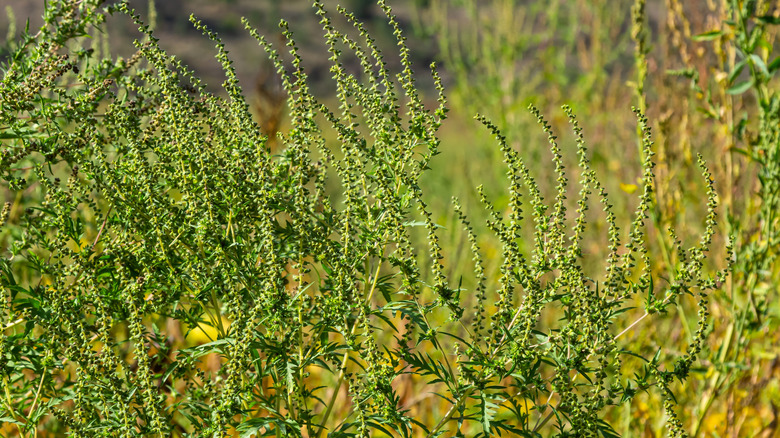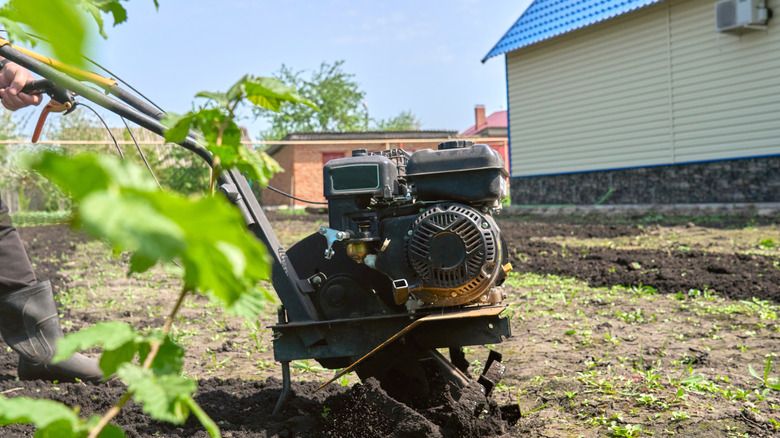The Best Way To Kill The Pesky Giant Ragweed In Your Yard
If you struggle with seasonal allergies and hay fever, chances are the mere mention of ragweed can give you the sniffles. Not only is the native weed notorious for causing allergy symptoms, but there are different species that can creep up in your yard as well. This includes giant ragweed (Ambrosia trifida), which is an annual plant that emerges during the spring to late summer months across North America. It is primarily found in large fields and agricultural areas, where it can grow to 12 feet tall if not addressed. The best way to get rid of ragweed in your yard is with regular lawn care, as well as with tilling and herbicides.
Giant ragweed, as with other ragweed species, is relentless, and can grow in some of the toughest conditions. Seeds may emerge from up to 6 inches within the ground, and when they do, the plants can take off quickly. When considering how to keep ragweed out of your lawn more generally, the first strategy is to keep your grass mowed. Giant ragweed is no exception here. The species of ragweed does not tolerate the effects of mowing, and it is far less likely to grow and spread in a well-maintained lawn. The key, as with any species of ragweed, is to mow the plants before they start to flower and spread seeds.
Tilling and herbicides may help control giant ragweed in certain stages
Giant ragweed can spread rapidly, with each plant producing up to 10,300 seeds. Aside from the right way to mow if you do not want weeds to take over your yard, there are other strategies to eliminate giant ragweed or prevent it from spreading. Tilling is one solution. While commonly used as an agricultural technique to help crops grow, tilling involves soil aeration that can also control weeds. When used for giant ragweed, it is important to do so when the plants have sprouted, but not yet flowered. Tilling the soil can destroy new seedlings that sprout, but this method may also encourage germination.
The herbicidal control of giant ragweed should be a last resort. Not only are there chemical exposure concerns to you and your family, but it turns out that giant ragweed is difficult to kill with herbicides because of its rapid and deep growth from soil. You would need to choose the right types of weed killers before spraying it in your yard. Some types of giant ragweed are considered resistant to common herbicidal ingredients on the market, including ALS inhibitors and glyphosates. If you decide to use herbicides, always follow the instructions on the product label. You would need to use these with other control methods for giant ragweed, as herbicides alone cannot control these plants.

